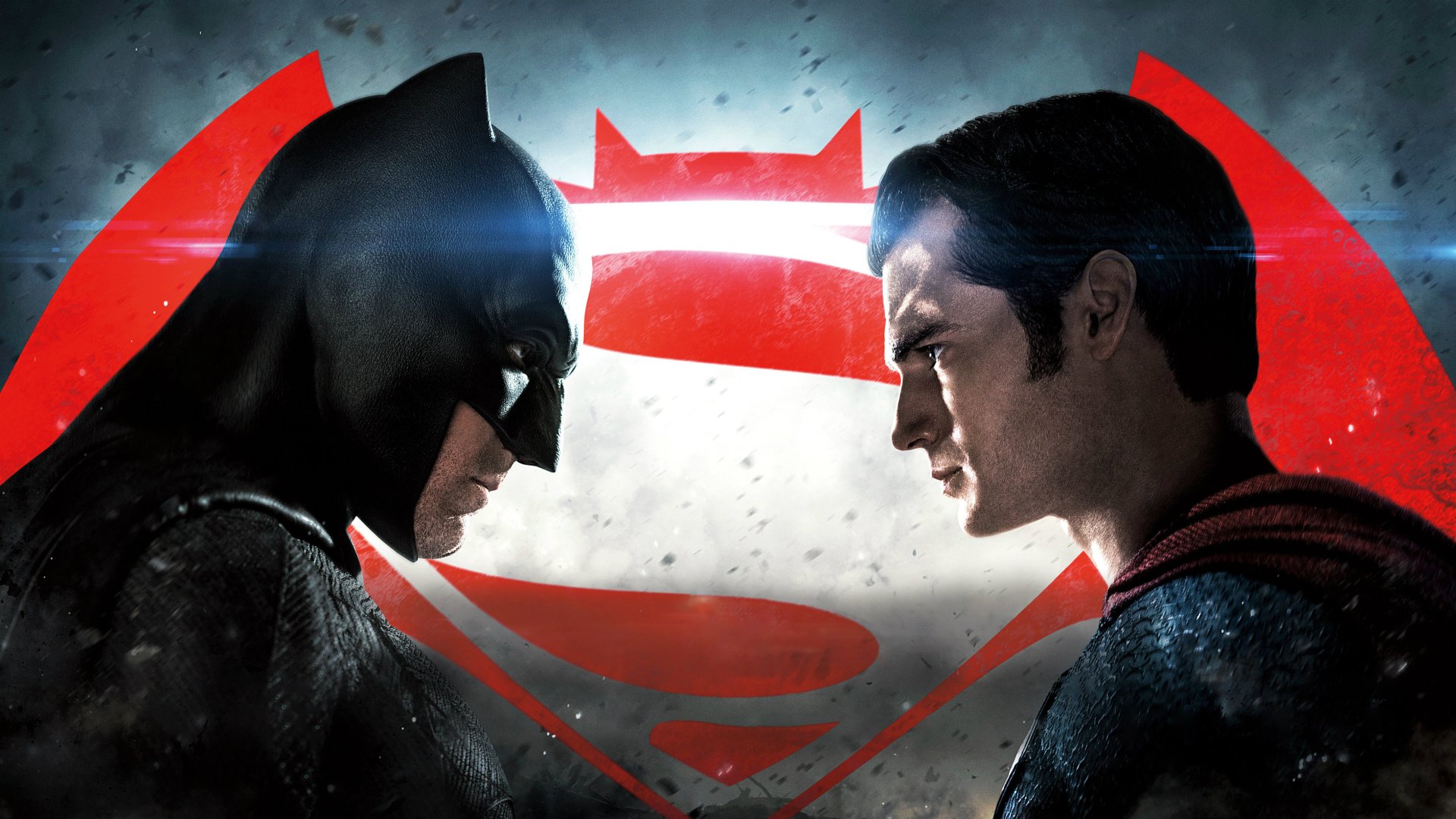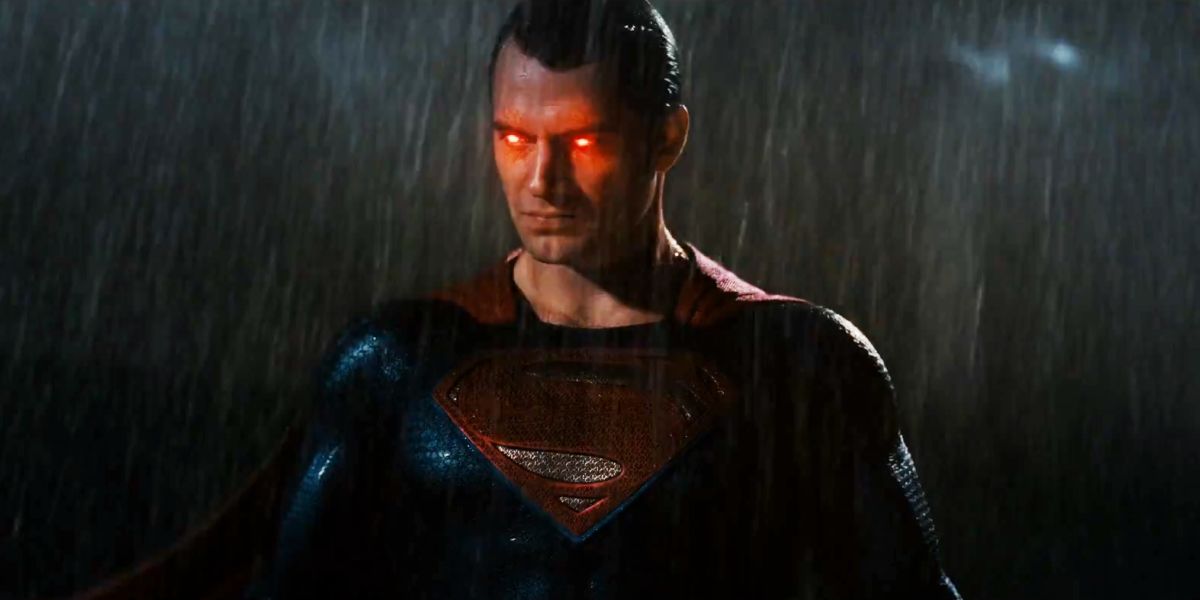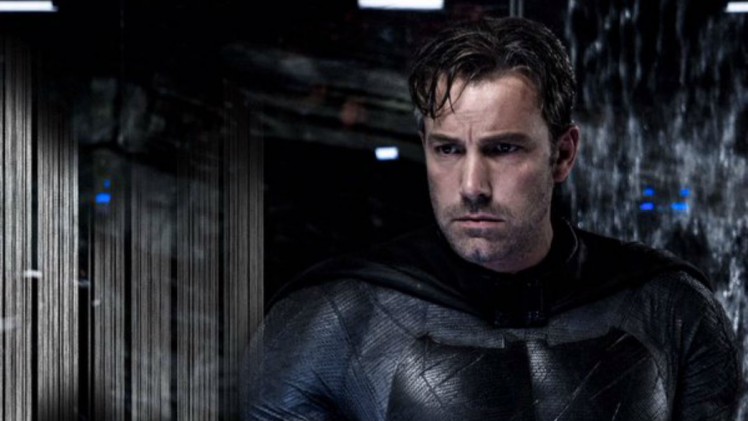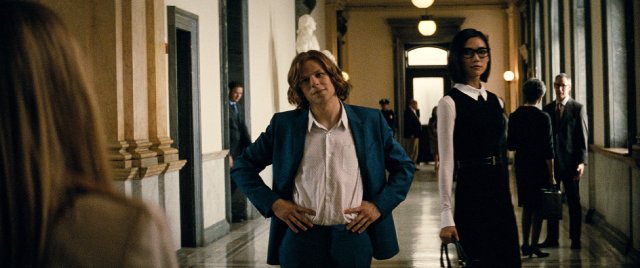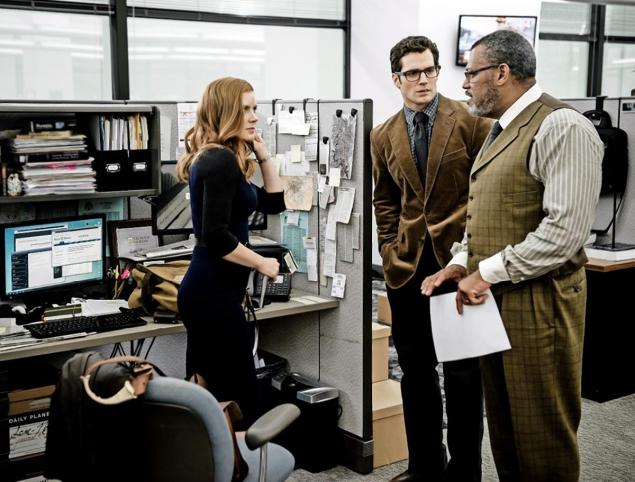Have you ever wondered what it would be like to have your head driven through solid rock and glass and brick walls for two and a half hours, blinding flashes of lights unceasingly forcing your eyes shut?
Would you like to have this experience accompanied by a blaring, schizophrenic musical score?
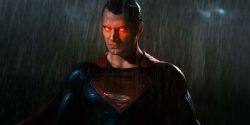
Maybe you'd be down for a handful of frustratingly underdeveloped political ideas, slathered thickly with a merciless onslaught of way, way overdeveloped religious references—nay, images and statements that border on flat-out plundering the Gospel accounts?
Great! Then this Good Friday, saunter on out to your local multiplex for Batman v Superman: Dawn of Justice.
This installment, an obvious set-up for a forthcoming Justice League franchise, is directed by Zack Snyder, whom even the most ardent fans could not accuse of subtlety. It stars Henry Cavill as a pudding-faced Superman, Ben Affleck as the most square-jawed Batman imaginable (with Jeremy Irons as Alfred), Amy Adams as Lois Lane, and the twitchiest of Jesse Eisenbergs as Lex Luthor. Superman is in Metropolis and Batman is in Gotham, and various people doubt that they ought to be able to operate outside the law, while various other people think it's for the greater good. Though the title is a bit of a red herring, various circumstances do lead them to fight, parts of their respective cities get super-destroyed, and Lex Luthor prances about uttering the kind of lines that make you back away from people on the subway. There are monsters and science and Evil Corporations, and plentiful bad dialogue.
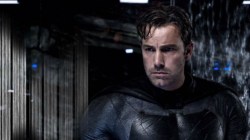
I am only mildly attached to these characters and stories, not having grown up with comic books or television and movies. I've seen (and liked) Christopher Nolan's Dark Knight trilogy and Tim Burton's Batman. I haven't seen any Superman movies, but I get the gist of the story and have a sense of who Superman, Lois Lane, and Lex Luthor are. My main goal when I see a film like this is to have fun, be made to think a little, and feel for at least a few characters when something is at stake.
Which is why I can confidently state that when we cast our wistful gazes back to the Nolan trilogy, it's remarkable how little background information a person needed in order feel invested in (or terrified of) the characters and plot. Sometimes those films veered toward moralizing, but they had the right idea: superhero movies do best when they're not just a story about some characters fighting, but a tale that’s really about us, in the real world, where we don't have superheroes.
In about five-minute intervals, something happens in Batman v Superman that makes it clear it wants to do this. But they build to nothing. This movie has no idea what it's doing. It seems like maybe Superman is supposed to be the more noble of the two, with a purer heart toward mankind, except we mostly just see him save his friends and family. A pivotal moment on which the plot turns and the title gets inverted is so profoundly, unbelievably unearned, so baldly manipulative, that it has no meaning at all.
There's a Senate committee on Superman headed by Senator Finch (Holly Hunter), in which she suggests that nobody should be above the law and that in a democracy we decide together by discussion what counts as good—except it's clear from ensuing plot points that's not true. What is true is that evil spoiled heads of corporations are bad and shouldn't be allowed access to science, or, for that matter, Greek mythology.

Lex Luthor (Jr., technically) gets the lion's share of the religious lines, trotting out God—or his vengeful and ultimately weak tribalist idea of God—as a metaphor for Superman. He declares loudly that God is dead, or isn't dead, or will be dead, or ought to be dead; I wondered briefly if the God's Not Dead franchise filmmakers had indulged in product placement. But it's not just Luthor: Batman v Superman calls in incredibly and blatantly Christian imagery to tell us things about Superman, culminating in a shot that is a direct reference to a familiar trope in paintings of lamentations over the dead Christ at the foot of the cross.
I guess you could find that offensive, but mostly it's just lazy, because it's not there to do anything, to make any actual statements about good and evil and God. All it does is spoil the film's ending for those of us who don’t know what happens next. And that ending tries to simultaneously suggest that we need the alien god to save us and that we have to save ourselves.
Probably the most obvious example comes when Luthor proclaims the problem of evil as if he himself discovered it during a coke-fueled all-nighter: “If God is all powerful,” he sneers, “he cannot be all good; if God is all good, then he cannot be all powerful.” That's a big problem, the possibility of both omnipotence, omniscience, and omnibenevolence, one that great minds have wrestled with for centuries.
But in a telling move, the movie goes on to solve that problem half an hour later. To quote the Coens in another recent Passion Play: would that it t'were so simple.
And yet, here's the thing: if you're going to make that many obvious allusions—nay, straight-up shout-outs—to the gospels' account of Jesus' death and resurrection, and you're going to do it in a movie premiering during Holy Week, I humbly submit that you've really got to have some kind of a point. Otherwise you're just recounting well-worn ground, but with more explosions.
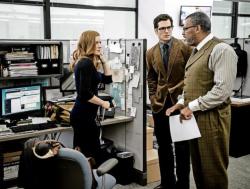
Certainly some people will enjoy the movie; it will play best to audiences like those who love any Bible films, or film based on a classic book, as long as it stays “true” to the text. They love the characters, and know the stories, and are ready to enjoy what's essentially a covers album for their favorite band. The fun comes from seeing how someone reinterprets a beloved tune or superhero. And there's nothing especially wrong with that, except that this movie has bigger ambitions and just can't deliver.
For the rest of us, it’s just a confusing slog.
There are two bright spots in the film: Ben Affleck, the Bruce Wayne we've all been waiting for, and Amy Adams, who still doesn't get enough screen time as Lane but is fantastic whenever she does. The arrival of Wonder Woman is exciting, and far too brief. But the rest of the film is just one big hulking monster seemingly designed to pull dollars out of your pocket and make you feel like you've seen something meaningful and smart, when actually it's just a feverish maudlin operatic mess.
Anyhow. Go, if you must. But at minimum, bring shades.
Caveat Spectator
General peril and wanton extinguishment of human life, of course. Lots of fighting, some of it rather brutal. There's a scene with Amy Adams in a bathtub that doesn't “show anything,” but barely. A few curse words and a crude term for male genitalia.
Alissa Wilkinson is Christianity Today’s critic at large and an assistant professor of English and humanities at The King’s College in New York City. She is co-author, with Robert Joustra, of How to Survive the Apocalypse: Zombies, Cylons, Faith, and Politics at the End of the World (Eerdmans, May 2016). She tweets @alissamarie.

